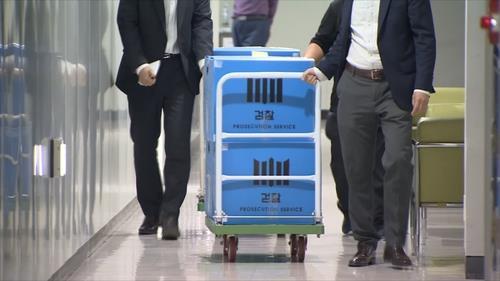[INTERVIEW] 'North Korea's complete denuclearization unlikely'图片展示
发布时间:2024-09-21 观看次数:50242





[INTERVIEW] 'North Korea's complete denuclearization unlikely'视频展示
[INTERVIEW] 'North Korea's complete denuclearization unlikely'详情
 |
| Robert Gallucci, Georgetown University professor and former chief U.S. negotiator during North Korea's 1994 nuclear standoff, talks during an interview with The Korea Times at the Shilla Hotel in central Seoul, Thursday. / Korea Times photo by Hong In-ki |
By Lee Suh-yoon, Lee Min-hyung
A U.S. expert on North Korea's nuclear issue said it might be unrealistic to continue pushing for "a complete, verifiable and irreversible" denuclearization (CVID) of North Korea's nuclear programs, despite the North's commitment to denuclearization.
Robert Gallucci, the former chief U.S. negotiator during the 1994 North Korean nuclear crisis, said the standards for denuclearization set by the popular notion of CVID would be physically impossible.
"We cannot verify the declaration of the North," Gallucci said during an exclusive interview with The Korea Times, Thursday, during his participation in the Korea Forum 2018 co-hosted by the English daily and its sister paper the Hankook Ilbo.
"We can verify the destruction of what they declare but if they declare 25 nuclear weapons, we cannot verify that's all they have. This material and this number of weapons are too small, and North Korea is too big for us to know. It's just a fact that North Korea will forever enjoy this ambiguity."
So continuing to emphasize the CVID in future discussions about North Korea would mislead the general public, Gallucci said. Instead, striving for a temporarily setback in North Korea's nuclear weapon production schedule, he believes, can be a more accurate depiction of possible international efforts to curb North Korean leader Kim Jong-un's nuclear program.
"What we're really talking about is 'time to weapon,' as a metric to how close a country is to nuclear weapons," Gallucci said. "We heard this in detail during the negotiations over Iran ― to stretch out the 'time to weapon' from a matter of weeks to months to a matter of years."
Even if successful, this "stretching out" of North Korea's nuclear weapon production schedule would be temporary, Gallucci said.
 Kim Jong-un, Xi Jinping met in China on May 7-8 2018-05-08 20:17 | North Korea
Kim Jong-un, Xi Jinping met in China on May 7-8 2018-05-08 20:17 | North Korea "Nobody is suggesting that North Korean nuclear scientists leave the country or they be shot," he said. "Anything that has been built and has been dismantled can be built again."
In the upcoming summit between Washington and Pyongyang, Gallucci believes Kim Jong-un comes to the table with a good hand.
"The North Koreans are at the table in part because they have achieved something most U.S. analysts thought they couldn't achieve this quickly, which is thermo nuclear capability with an ICBM (inter-continental ballistic missile) delivery," Gallucci said.
With regards to the recent row over whether U.S. forces need to stay in South Korea if a peace treaty is signed, Gallucci said it is an issue that should be worked out within the U.S.-South Korea alliance, but cited the possibility of confidence- and security-building measures (CSBMs).
"It's not a question for either the U.S. to settle with the North Koreans or the South Koreans to settle with the North Koreans," he said. "It might be that on the table, will be CSBMs." He said the North and the allies could consider gradually pulling back troops from the demilitarized zone (DMZ) without necessarily reducing the number of troops, as a part of the CSBMs.
Closure of USKI
Gallucci is the head of the U.S.-Korea Institute (USKI) of the Johns Hopkins University's School of Advanced International Studies. The institute faces closure this coming Friday over a staffing dispute with its main funding source ― the state-run Korea Institute for International Economic Policy (KIEP).
Gallucci said he was "deeply disappointed" with the South Korean government's decision to end funding for the USKI, calling it the "exercise of inappropriate influence on power based on a funding relationship."
"The Korean government denied that they attempted to influence staffing when I actually had hard copy messages from the KIEP and was visited by more than one person ― official people from the Korean government ― and told that if I and the dean did not remove the director and the assistant, funding would be cut off," he said.
Gallucci also said the timing of USKI's closure was ironic because diplomatic progress is finally being achieved for the peace and denuclearization of the Korean Peninsula.
"I feel that it is ironic that whoever made this decision chose this moment (to cut funding) ― when USKI's mission is to improve relations through dialogue between the U.S. and the people of Korean Peninsula," he said.